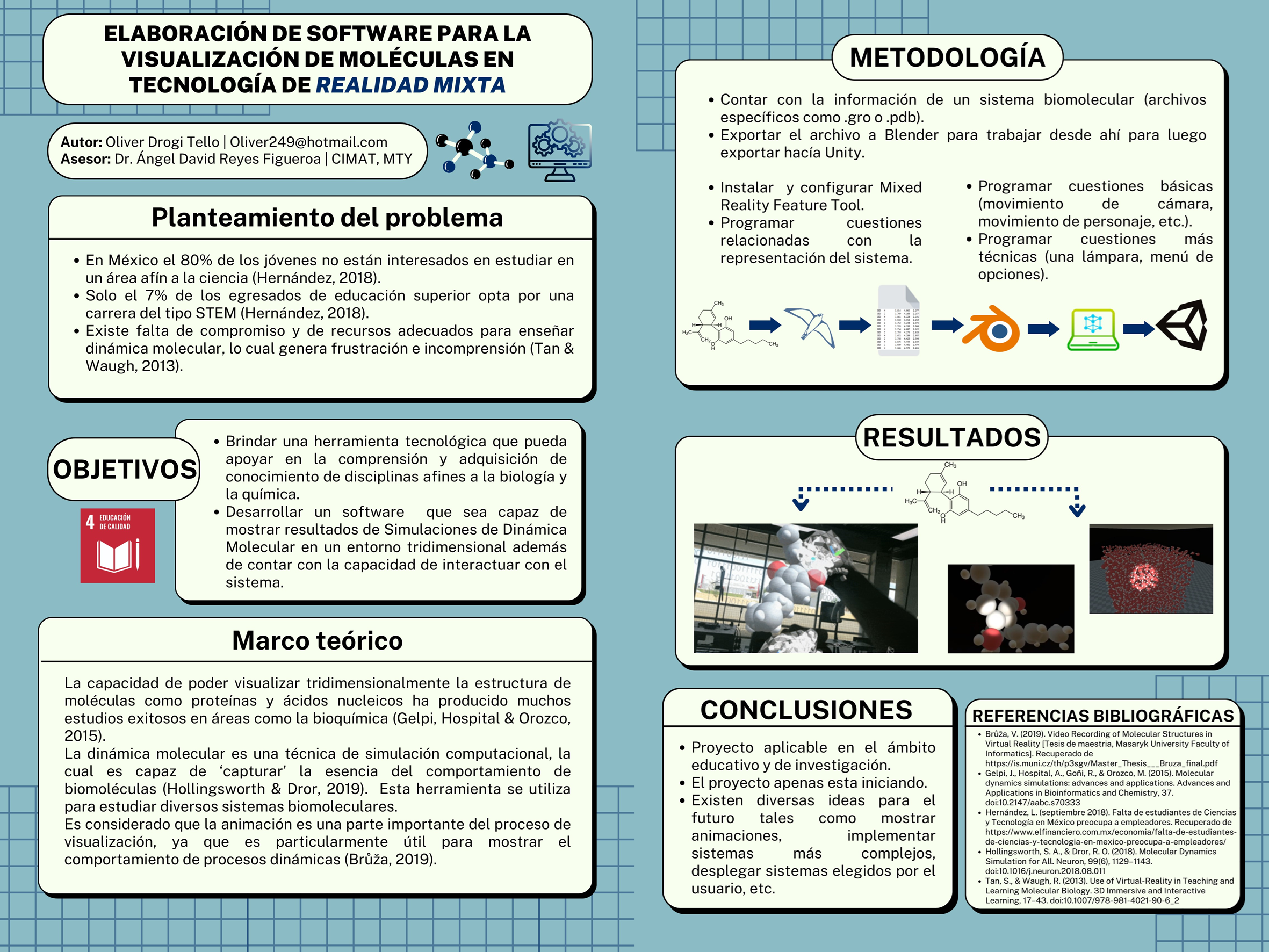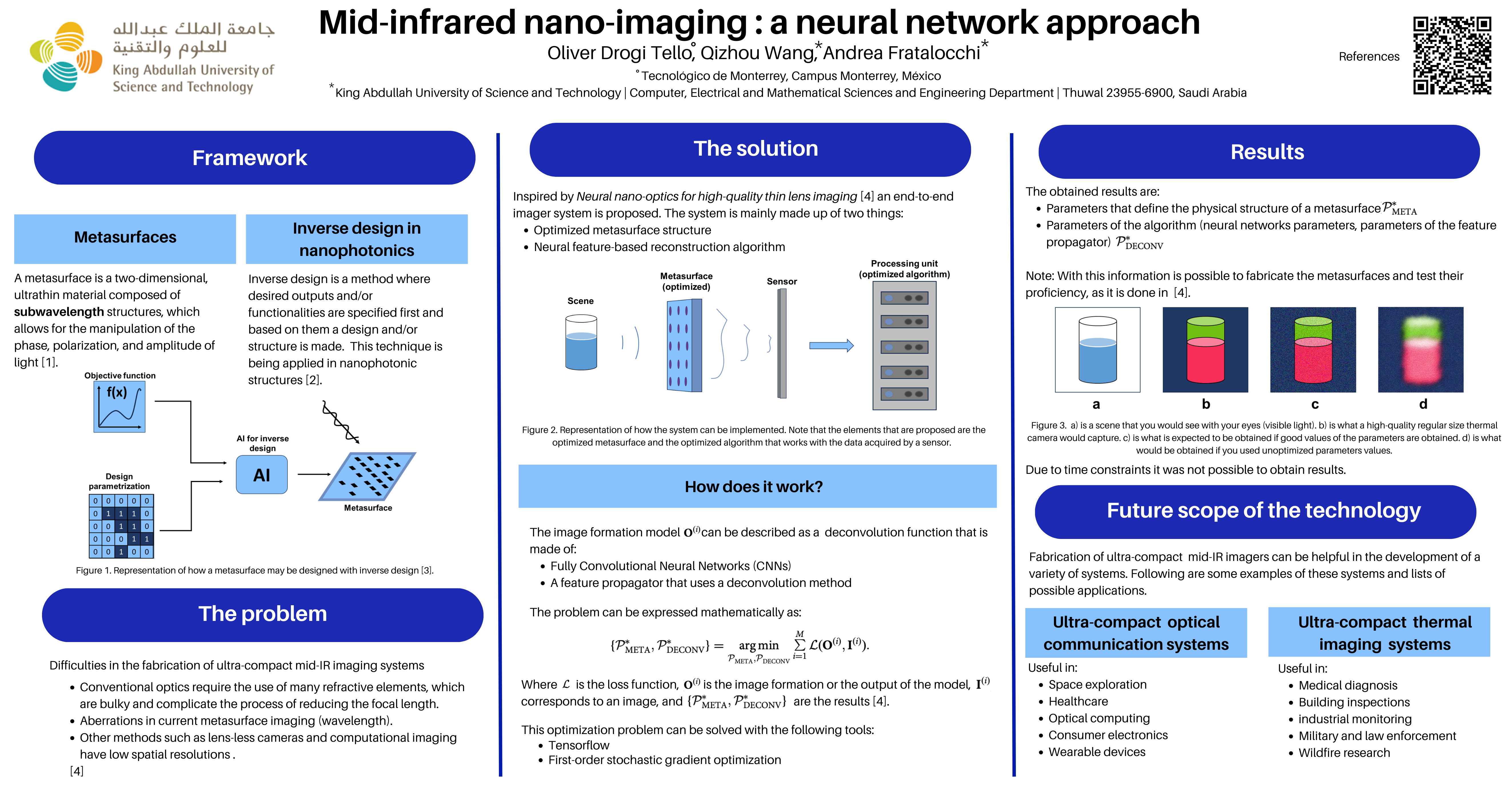Projects
During my Engineering Physics degree I worked on many projects. This section highlights the best from my studies and other opportunities I have had.
A simulation of the three-body problem was made on MATLAB. This problem involves modeling the motion of three bodies interacting gravitationally, which results in a system of differential equations that cannot be solved analytically. The velocity Verlet numerical method was employed to approximate solutions to these differential equations. This method is particularly useful for problems in classical mechanics because it is accurate and stable.
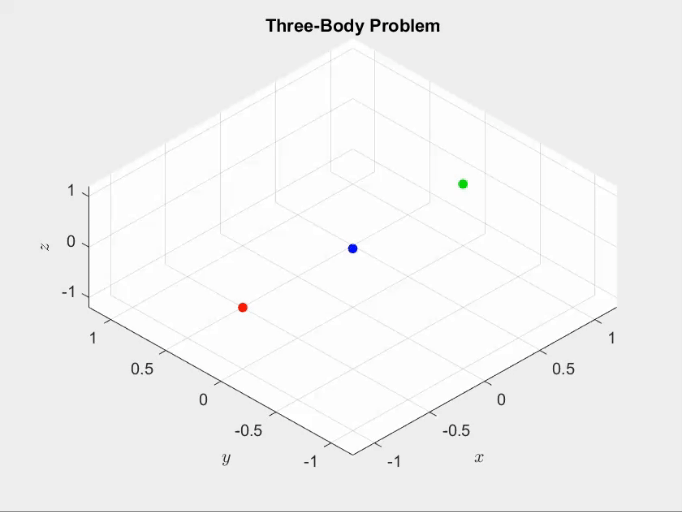
A simulation of the dynamics of a particle in a cyclotron, a type of particle accelerator, was conducted using MATLAB. This simulation models the motion of a charged particle as it moves through both magnetic and electric fields. The equations of motion are quite simple so the Euler method was employed to approximate the particle's trajectory. Additionally, a kinetic energy graph is incorporated, allowing for real-time monitoring of the particle's energy state.
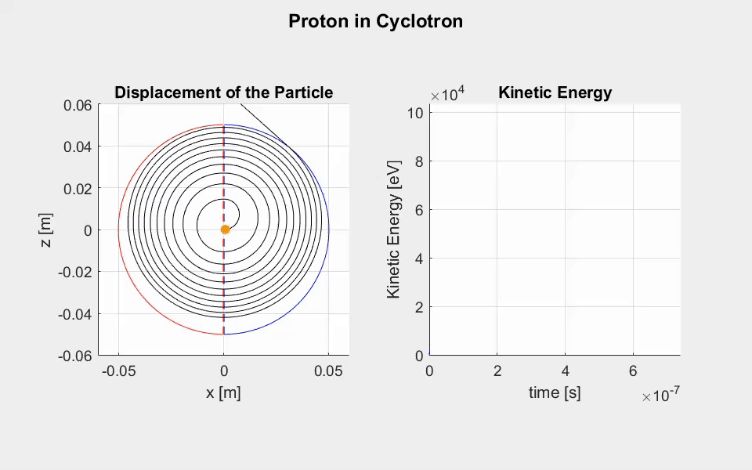
A computational study was conducted for a particle situated within a harmonic oscillator potential in both 2D and 3D. The system's eigenstates can be represented using both Cartesian and polar coordinates, and both representations were meticulously explored.
The study covered an extensive range of scenarios. The analyzed quantities included probability densities, wave function phases, system probability currents, and expected values of quantities such as kinetic energy and angular momentum.
In the most general case studied, the focus was on simulating the temporal evolution of a system starting from an arbitrary initial state, with a prime focus on its probability density. This requires decomposing the initial state in eigenstates, and then add the time-dependent factor to each eigenstate and add everything together. Given that this process involves several double integrals and calculations using Hermite and Laguerre polynomials, it was necessary that the written code was highly efficient.
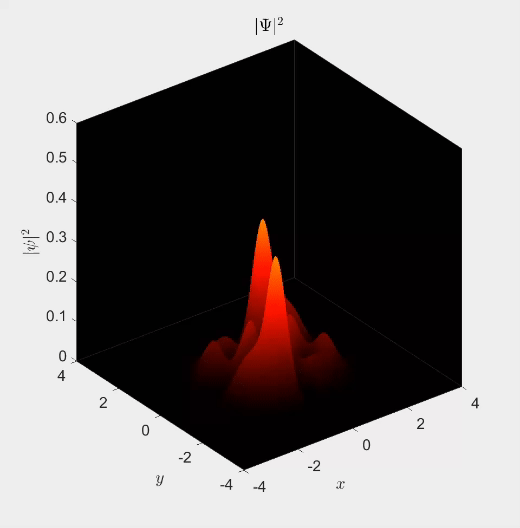
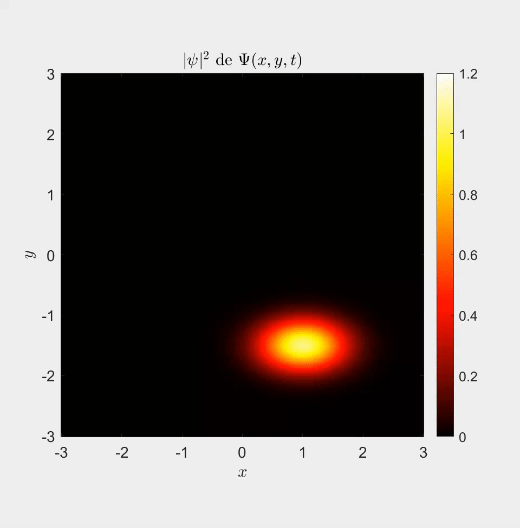
I participated in the "Summer of research 2022" at “Parque de Investigación e Innovación Tecnológica” (PIIT), where several research centers were involved; in my case I worked in the "Centro de Investigación en Matemáticas” (CIMAT) in Mexico.
The title of the project I was involved is: "Study of Cannabidiol aggregation in the presence of cholesterol using Molecular Dynamics simulations" (this title was translated). While the main objective was to develop molecular dynamics simulations in GROMACS, my specific role emphasized the creation of software for molecular visualization. The project was presented at the end of the summer.
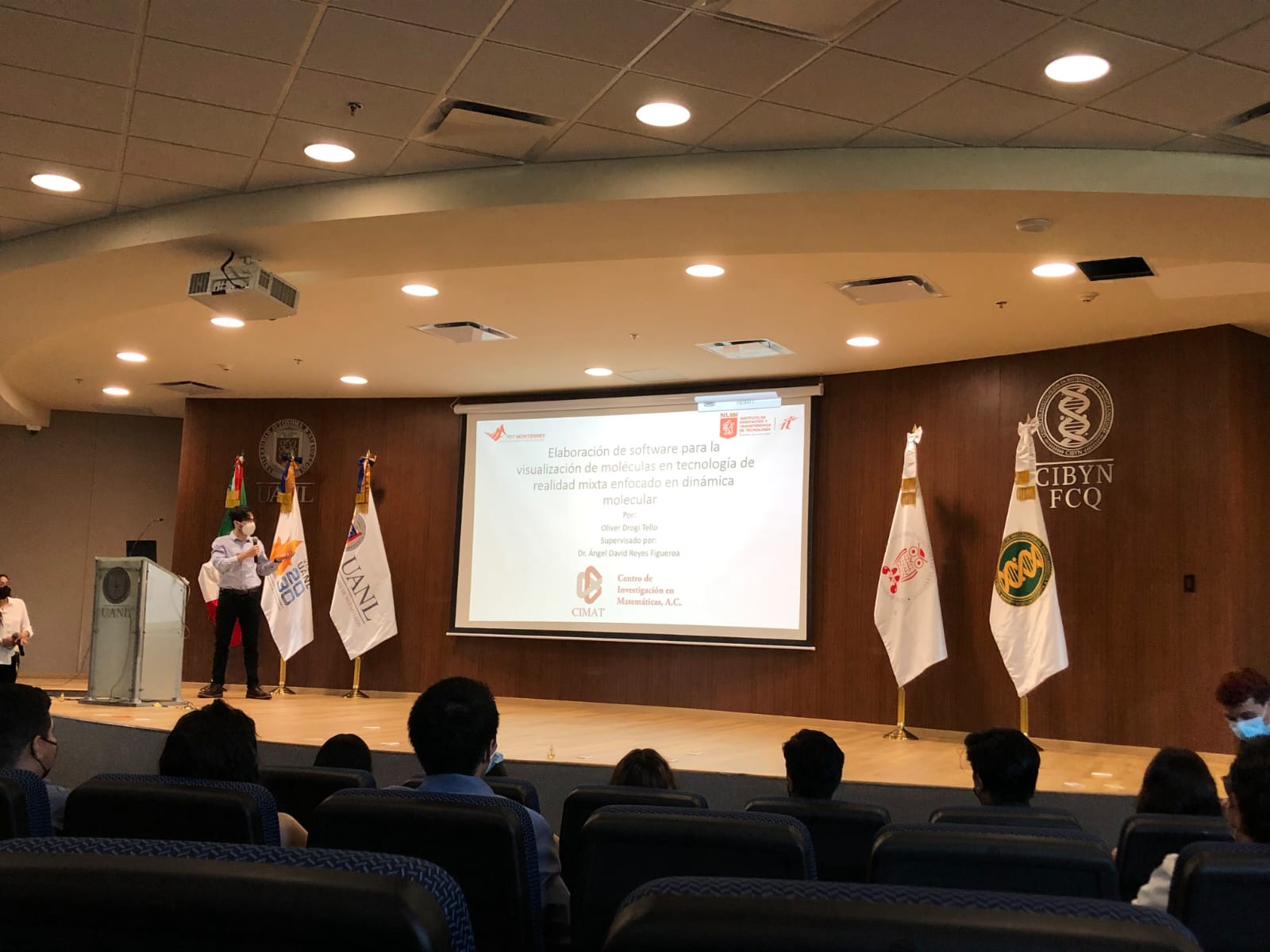
This internship led to the development of a personal project that was guided by an advisor. The name of the project is: “Elaboración de software para la visualización de moléculas en tecnología de realidad mixta enfocado en dinámica molecular” It can be translated as: “Development of software for the visualization of molecules in mixed reality technology with a focus on molecular dynamics.”
- TThe essence of the project lies in creating a technological tool—a software—for visualizing biomolecular systems. The project is divided in two; a software focused on mixed reality technology and a software focused for conventional computer usage.
- Participation in “ExpoCiencias Nuevo León 2022” and accreditation for “ExpoCiencias Nacional 2022”.
- Participation in the annual symposium of Universidad Iberoamericana Puebla 2022.
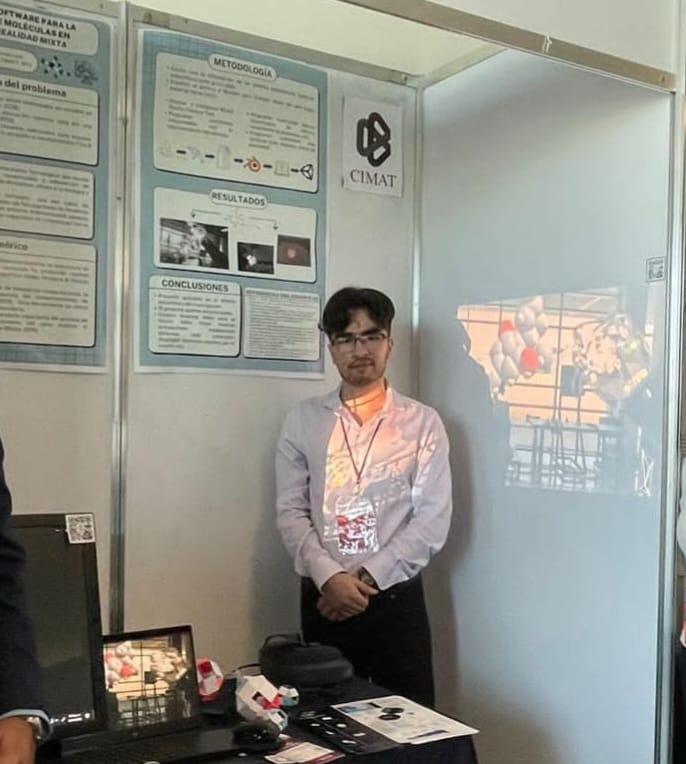
I assist in a research project at Tecnológico de Monterrey that focuses on image processing for the prediction of emotional states in educational contexts. The name of the project itself is: “Machine learning and image processing for the prediction of emotional states in educational contexts.”
The lead researcher has a database that showcases the effects of environmental factors on individuals. This data was collected by having participants use virtual reality devices, after which specific metrics linked to their physiological and cognitive responses were measured. These metrics encompass attention span tests, perspiration levels, and brainwave analysis, among others.
Several sub-projects have been done, they can be described in the following way:
- Several features were extracted from the images by means of algorithms that were developed in MATLAB. Some the features are related with: color, entropy, edges, fractal dimension, among others.
- Statistical analyses and machine learning models are made to relate features of the images with physiological and cognitive variables.
- Classification problem in which, given certain variables of the images (illuminance, shape and color), we want to predict the state of attention and memory of individuals.

In July 2023, I was selected for a fully funded research program at the King Abdullah University of Science and Technology (KAUST), joining other students from around the globe.
I was invited to the Photonics Summer Camp, This program emphasizes participation in research projects spanning various domains of modern photonics, supplemented by workshops and technical training sessions.
Each participant engaged in a unique research project; in my case my project was titled "Mid-infrared Nano-imaging: A Neural Network Approach" which consists in using Artificial Intelligence for designing a nano-scale device capable of capturing images in the mid-infrared range of the light spectrum.
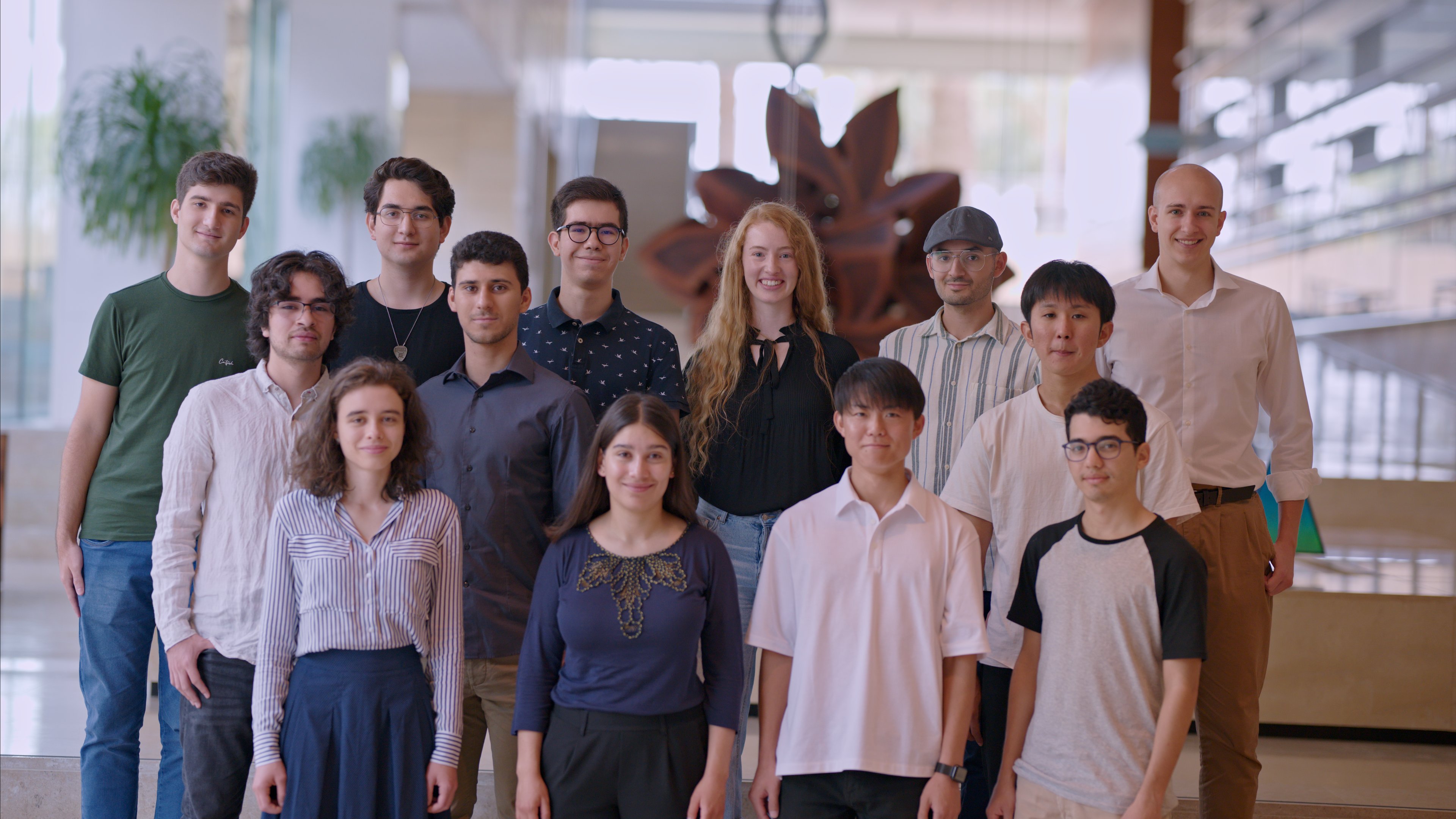
Data Science Project as the final project of the Data Science Course by Crystal Talent Solution. The project consists of the elaboration of a model that is able to predict the number of comments in a blog in the upcoming 24 hours. The CRISP-DM methodology was followed, and several models were made (multiple linear regression, regression trees, kNN).
The course provided by Crystal Talent Solution covered several topics, such as supervised learning, unsupervised learning, with an emphasis on business contexts
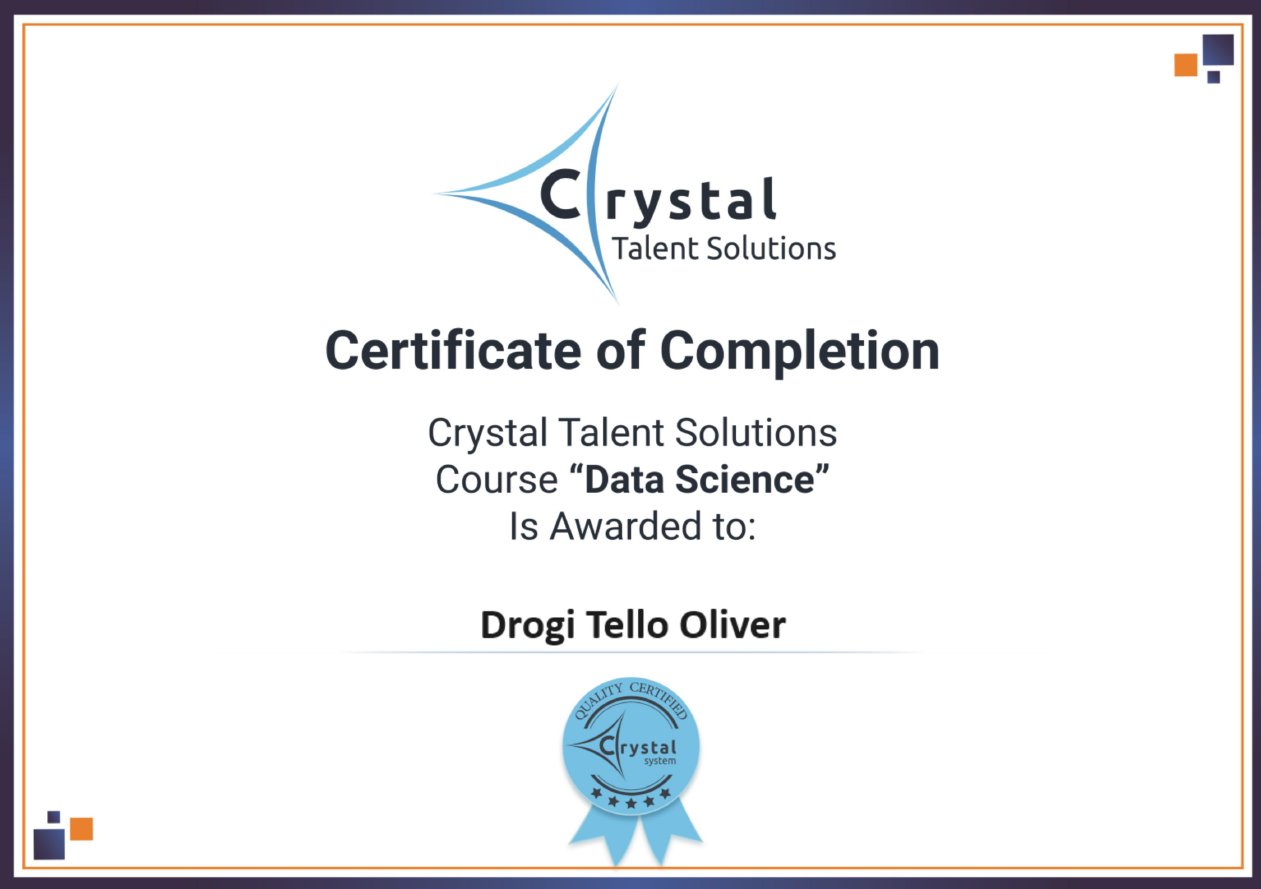
"I have had research experience in areas related to Data Science. The two projects are: "Mid-infrared Nano-imaging: A Neural Network Approach" and “Machine learning and image processing for the prediction of emotional states in educational contexts”, which were discussed in detail in the research.
